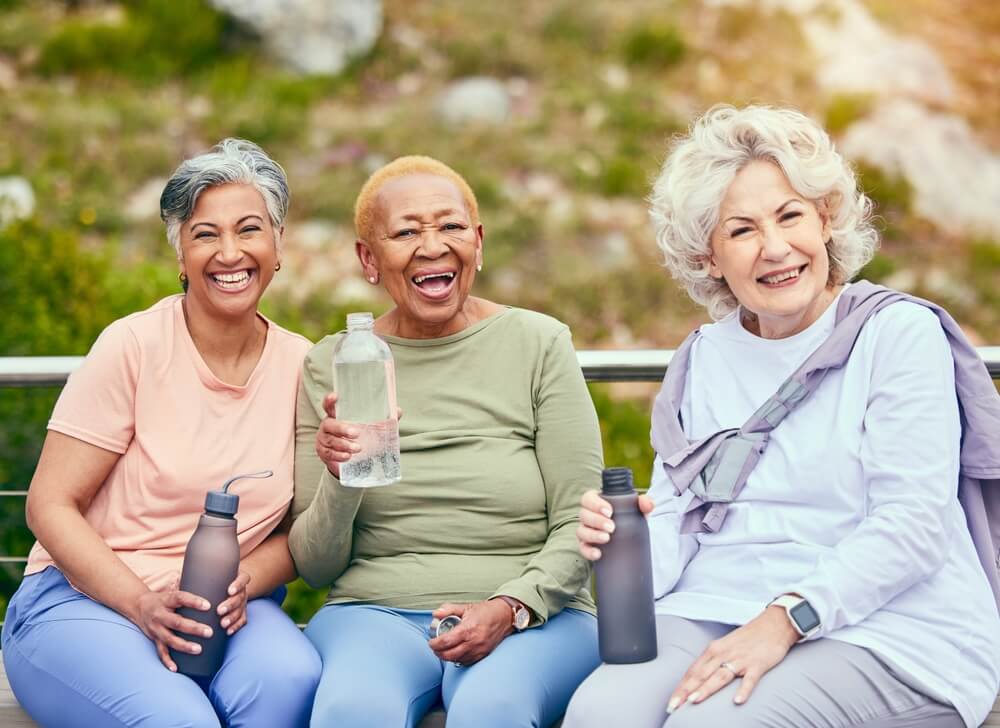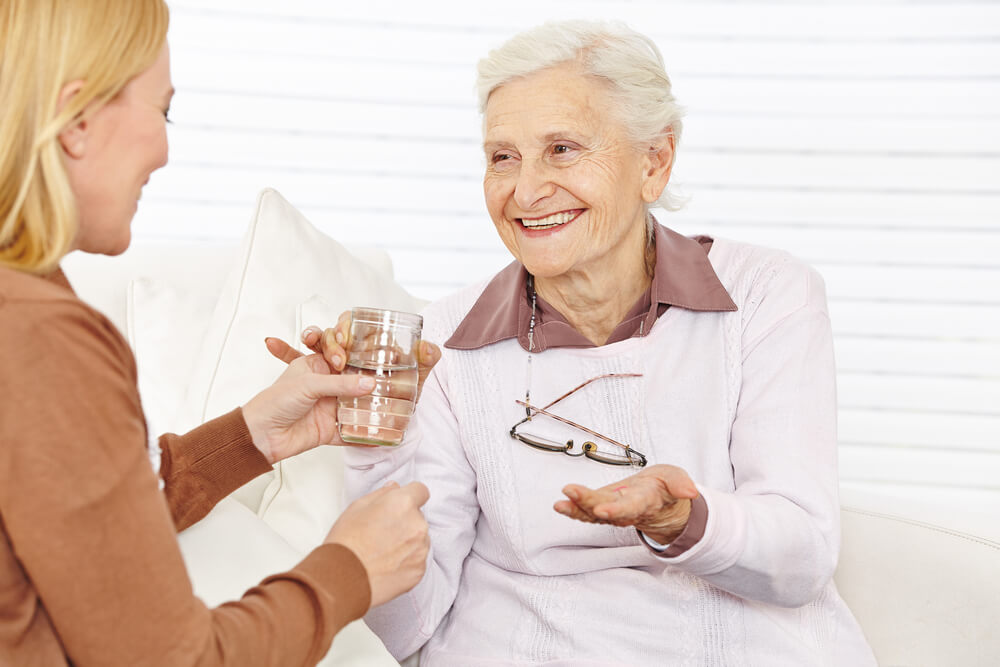Critical Need for Hydration in Seniors During Summer
Summer’s soaring temperatures pose a significant dehydration risk, especially for seniors who have a diminished ability to manage water balance. It’s imperative to focus on hydration to support seniors’ physiological and cognitive health. In this article, we discuss why staying hydrated is particularly important for the elderly during summer and offer strategies to help maintain adequate hydration.
- Dangers of summer heat: Increased temperatures heighten dehydration risks, making heat-related illnesses more likely for seniors.
- Unique hydration challenges faced by seniors: The natural aging process can impair the body’s thirst response and ability to retain water, complicating hydration efforts.
Understanding Senior Dehydration Risks
Hazards of Dehydration in the Elderly
In seniors, dehydration can exacerbate already vulnerable health states, leading to worsened renal function and cognitive impairment. Preventive measures and early detection of dehydration risks are vital due to these age-associated physiological changes.
- Reduced kidney efficiency in seniors: As seniors age, decreased kidney function increases their dehydration risk.
- Effects of medical conditions on hydration: Existing health issues and certain medications heighten dehydration risks, requiring careful monitoring.
Recognizing Symptoms of Dehydration in Seniors
Identifying dehydration early is crucial for managing and preventing serious health problems in seniors. Caregivers need to be observant and responsive to both typical and subtle dehydration indicators.
- Common dehydration indicators: Chronic symptoms like dry skin, tiredness, irritability, or reduced skin turgor are clear dehydration signals.
- Subtle dehydration cues: Less apparent symptoms such as occasional confusion or a decrease in urine output should also prompt proactive hydration measures.
Health Advantages of Proper Hydration
Effective hydration plays a pivotal role in supporting various bodily functions and overall health, especially in the elderly. Here’s a breakdown of its benefits:
- Kidney function support: Staying hydrated helps prevent renal complications and supports overall kidney health.
- Cardiovascular benefits: Proper hydration facilitates cardiovascular functions and maintains blood circulation.
- Digestive health benefits: Adequate hydration helps prevent gastrointestinal issues like constipation.
- Enhancement of cognitive functions: Hydration supports cognitive health, aiding in clarity and prevention of confusion.
- Energy levels and independence: Hydration is essential for maintaining energy levels, supporting seniors’ daily activities and independence.
- Skin health preservation: Regular hydration contributes to maintaining skin elasticity and overall health.
- Body temperature regulation: Adequate hydration helps regulate body temperature, especially important during heat waves.
Senior Hydration Strategies
Determining Adequate Fluid Intake
Tailoring hydration to individual needs is crucial for seniors, especially considering their health conditions and the external environment. Here are some targeted hydration strategies:
- Adapting hydration requirements: Adjust fluid intake recommendations based on health status and environmental conditions.
- Varied fluid options: Provide seniors with a selection of beverages, from flavored waters to nutrient-rich broths, to encourage adequate hydration.
Enhancing Fluid Consumption
Encouraging seniors to maintain regular fluid intake is essential for their health but can sometimes be challenging. Here are practical tips to facilitate hydration:
- Enhancing the appeal of fluids: Introducing flavorful additions to water or offering a variety of teas can make drinking more enticing.
- Establishing hydration routines: Promote consistent fluid intake by making water accessible and reminding seniors to hydrate at regular intervals.
The Role of Caregivers in Hydration
Caregivers are critical in ensuring that seniors stay hydrated, particularly during the challenging summer months. Here’s how they can help:
- Monitoring hydration levels: It’s essential for caregivers to track how much seniors drink and to watch for signs of dehydration.
- Providing accessible hydration solutions: Caregivers should ensure that appealing and refreshing beverages are always within easy reach for seniors.
Reach out to us at 844-666-8773 for a free consultation to share the challenges you’re facing, and to learn how our personalized home care services can help you.
Home Matters Caregiving proudly serves the North Atlanta area providing care for seniors wherever they call home.












